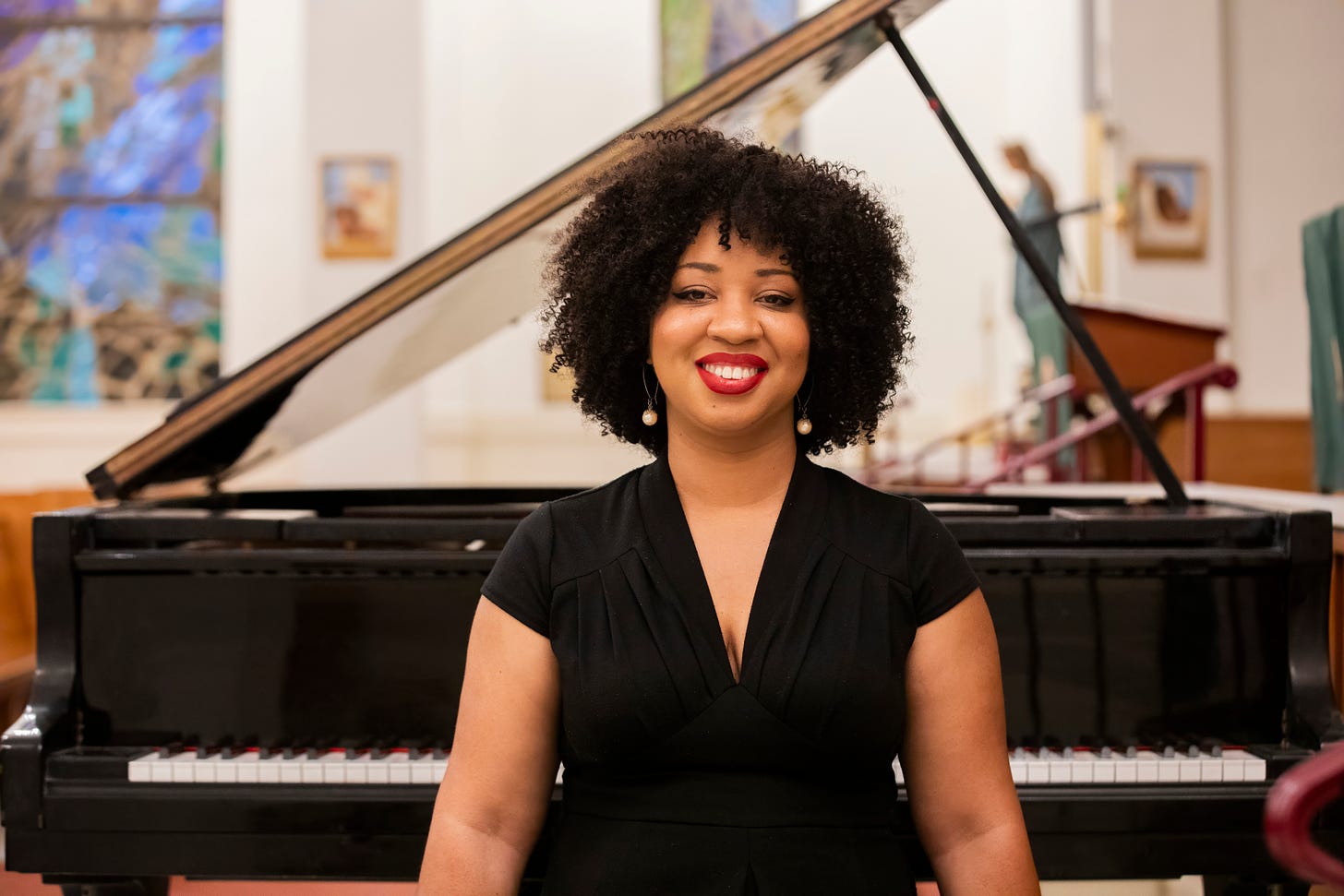Bonus Feature: A Word with Courtney Bryan
Catching up with a visionary composer, one of our new MacArthur geniuses.
There’s a lot to commend in this year’s class of MacArthur Fellows.
For starters, Ada Limón, a recent U.S. Poet Laureate whose 2018 book The Carrying is a breathtaking read. Linsey Marr, an environmental engineer whose aerosols expertise helped us pivot to an airborne theory of COVID-19. A. Park Williams, whose work in hydroclimatology, including a new wildfire forecast model, couldn’t be more critical. Imani Perry, whose writing on Black resistance and resilience is simply essential. Patrick Makuakāne, who as a Bay Area kumu hula has been fighting to preserve Hawaiian heritage — and deepen perceptions through work like Māhū, an exploration of gender fluidity made in collaboration with Hawaiian transgender artists.
I had prior familiarity with about half of the people I just named. The so-called “genius grant” put them all on the cultural radar in a big way, which is cause enough for celebration. As I hope you’ve heard, there are also two composers in this year’s class: Raven Chacon, a Diné artist who became the first Native American to win the Pulitzer Prize for Music last year; and Courtney Bryan, whose previous awards include a Samuel Barber Fellowship from the American Academy in Rome.
Both artists are currently featured at WRTI. We had already been planning to highlight Chacon in a roundup of music by indigenous composers, compiled and annotated by Morning Classical host John T.K. Scherch. (It’s worth adding here that the interdisciplinary visual artist Dyani White Hawk, who is Sičáŋǧu Lakota, also received a MacArthur this year.)
And yesterday I hopped on a Zoom with Bryan for this meet-the-composer profile. If you don’t know her work, it’s an approachable introduction. And I should add here that her latest piece, DREAMING (Freedom Sounds), will have its world premiere on Nov. 1 at the Kaufman Center in New York.
I’ve been a Courtney Bryan admirer since I first encountered her about a dozen years ago, and that admiration has only deepened. We first met in person in 2017, when I interviewed her and harpist Brandee Younger about the music of Alice Coltrane, which they were about to perform in concert at the Knockdown Center in Queens. When I emailed about a possible interview, she surprised me by responding right away from the American Academy in Rome, where she is finishing her fellowship.
If you’re a paid subscriber, keep scrolling for the full video of our conversation, which touches on Courtney’s first reaction to the “genius grant” news; how it feels to join the elite club of MacArthur Fellows, which includes both mentors and peers; how the pandemic and its attendant disruptions affected her work; and the various ideas that informed DREAMING (Freedom Sounds), along with a forthcoming opera. We also naturally talk about New Orleans, where she is on the music faculty at Tulane, and where she grew up toggling between musical traditions. (Fun fact: she was in the marching band at McMain Secondary School with Dwayne Carter, aka Lil Wayne.)
Thanks as always for reading The Gig. If this is your stop, have a great weekend!
Keep reading with a 7-day free trial
Subscribe to The Gig to keep reading this post and get 7 days of free access to the full post archives.




